How 22 NFL players lost weight after retiring and became unrecognizable
Cork Gaines

Getty Images
- Former Baltimore Ravens Pro Bowl offensive lineman Marshal Yanda lost 64 pounds in the first four months after retiring from the NFL.
- While many former athletes struggle with weight gain after their careers, many NFL players lose a ton of weight after retiring, revealing the great and dangerous lengths they go to maintain their oversized bodies.
- One common theme among many of these players is the position they played. Most of the players below were offensive linemen, suggesting those players do more to push their body weight to an extreme, developing dangerous habits like consuming massive amounts of calories to maintain their playing sizes.
10-time Pro Bowler and future Hall of Famer Joe Thomas is regarded as one of the best offensive linemen ever. He spent most of his career playing at 310 pounds and said he was "more eager to lose weight than almost anything in retirement."
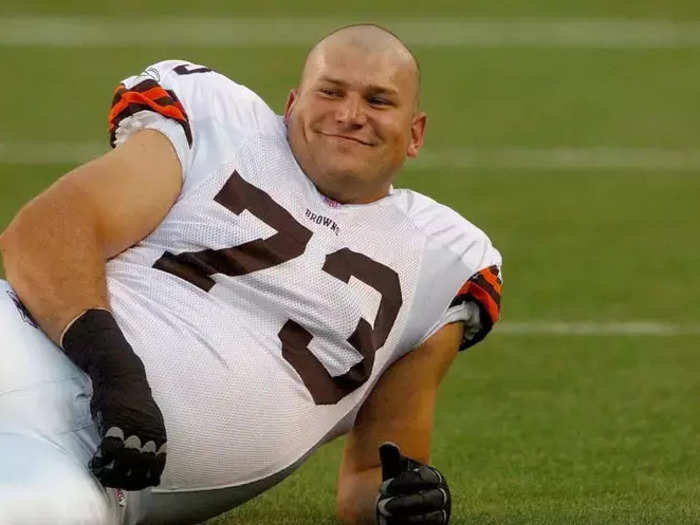
Joe Thomas Getty Images
Source: NFL Network
He is now an analyst for the NFL Network and it it took less than nine months after his final NFL game to lose 50 pounds. When asked how he did it, he chuckled and said, "You just don't eat until you feel like you're gonna throw up at every meal and all of a sudden the weight falls right off."

Joe Thomas NFL Network
Source: NFL Network
8-time Pro Bowl offensive lineman Marshall Yanda played his final NFL game at 312 pounds, retiring after the 2019 season and 13 years in the league, all with the Baltimore Ravens.

Ron Schwane/AP
Five months after retiring, Yanda was down to 248 pounds by working out and eating less, telling "The Pat McAfee Show," "I didn't really realize it at the time how much I was doing to keep that weight on, but obviously, it has come off really fast, and shoot, I feel so much better."

The Pat McAfee Show
David Pollack weighed as much as 297 pounds as a defensive lineman in college, and he last played in the NFL in 2006 as a 260-pound linebacker for the Bengals.
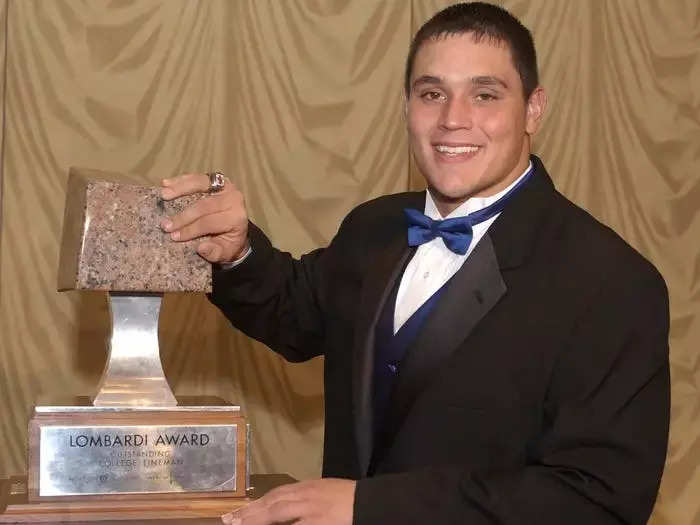
David Pollack Pat Sullivan/AP
After a career-ending injury, Pollack is now a 220-pound college football commentator for ESPN. Pollack says he just got smarter about what he eats and when he eats it.
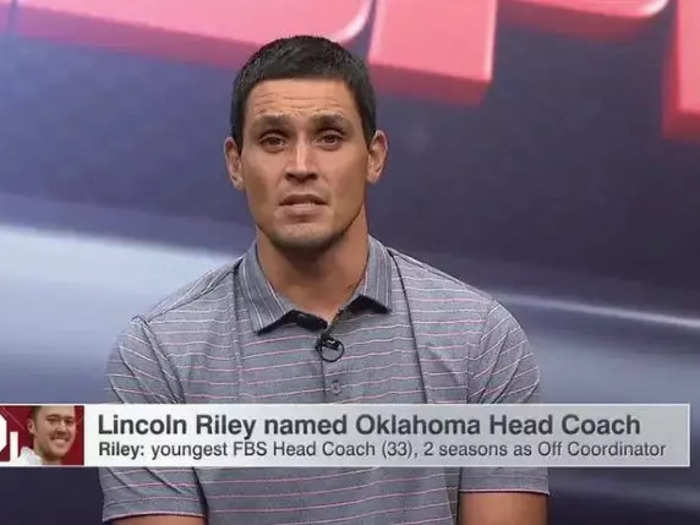
ESPN
SOURCE: @davidpollack47 and MensFitness.com
David Carter was a 300-pound defensive lineman for the Cardinals and Cowboys.
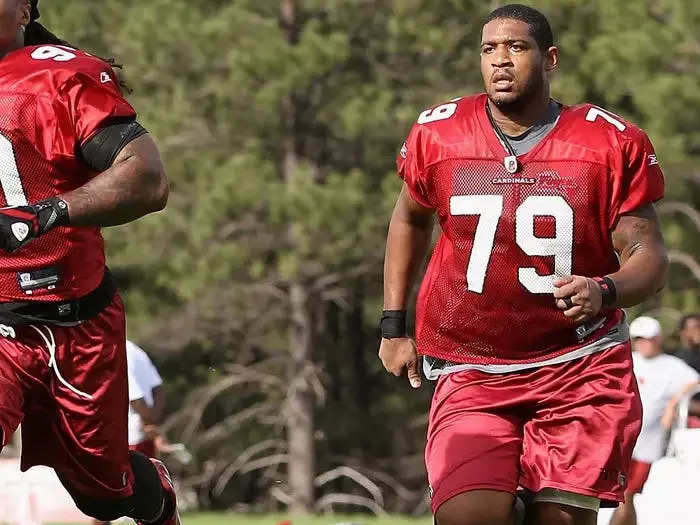
David Carter Christian Petersen/Getty Images
Carter lost 40 pounds in 6 weeks after becoming a vegan and is now a model.

Instagram
Source: Independent
Brad Culpepper (No. 77) was a 275-pound defensive tackle for three different teams and retired after the 2000 season.
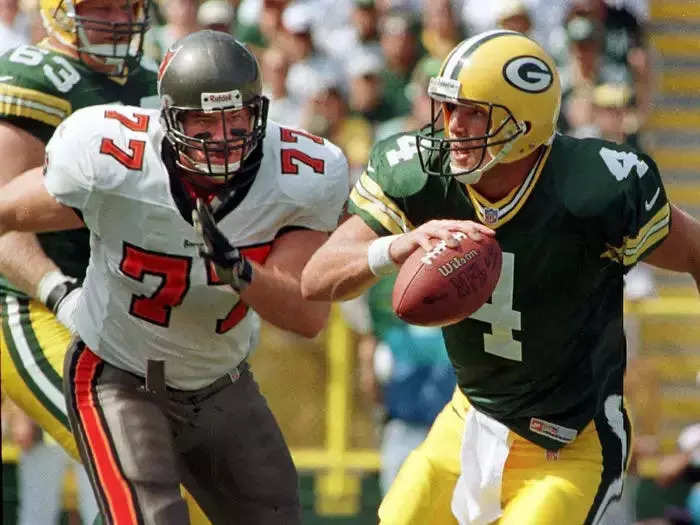
Brad Culpepper Reuters
Source: @monicaculpepper
Here is Brad Culpepper with his wife on the show "Survivor." He says it was pretty easy to lose 80 pounds because he simply stopped eating all the extra food needed to maintain his playing weight.

CBS/Survivor
Source: sptimes.com
Will Montgomery was a 305-pound offensive lineman with a size 42 waist who played for 5 teams in 9 seasons.

Will Montgomery Getty Images
Montgomery now weighs 225 pounds — his lowest weight since high school — and has a 34-inch waist. He did it by cutting out sugars, no longer eating pasta and bread, and drinking more red wine and less beer (Montgomery is on the left).

Twitter
Source: Washington Post
Mike Golic played for 3 teams in 8 seasons, most famously as a defensive tackle for the dominant Eagles' defense of the late 1980s and early 1990s. He was listed at 280 pounds during his career.

Mitchell Layton/Getty Images, Al Messerschmidt/Getty Images
Golic is now a podcast/radio host and college football commentator. He has slimmed down considerably.

Mike Golic Sr. Instagram
Alan Faneca was a 320-pound offensive lineman for the Steelers, Jets, and Cardinals, and he last played in 2010.

Alan Faneca Getty Images
Alan Faneca has lost 105 pounds since he stopped playing, and he completed his first marathon in 2014.

Alan Fanaca Twitter
Source: @lianefaneca and WashingtonPost.com
Nick Hardwick was a 300-pound center for the San Diego Chargers who retired after the 2014 season. He said he had to eat "lots of ice cream, burritos, pizza" and "whatever else [he] could get [his] hands on" to maintain his size.
![Nick Hardwick was a 300-pound center for the San Diego Chargers who retired after the 2014 season. He said he had to eat "lots of ice cream, burritos, pizza" and "whatever else [he] could get [his] hands on" to maintain his size.](https://staticbiassets.in/thumb/msid-96464453,width-700,height-525,imgsize-30888/nick-hardwick-was-a-300-pound-center-for-the-san-diego-chargers-who-retired-after-the-2014-season-he-said-he-had-to-eat-quotlots-of-ice-cream-burritos-pizzaquot-and-quotwhatever-else-he-could-get-his-hands-onquot-to-maintain-his-size-.jpg)
Nick Hardwick Brian Bahr/Getty Images
After retiring, he lost 85 pounds in four months by reducing his calories, using intermittent fasting, and yoga.
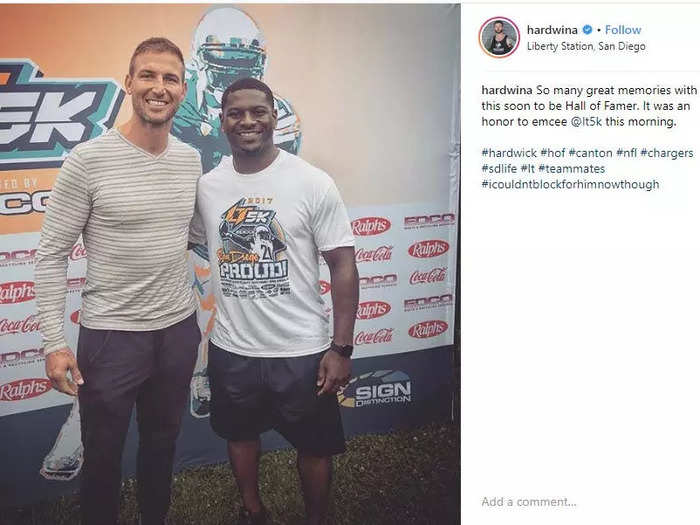
Instagram
Source: Los Angeles Times
Matt Birk was a 310-pound center for the Vikings and Ravens who retired in 2012.

Matt Birk Rob Carr/Getty Images
After retiring, Matt Birk lost 75 pounds after joining Body By ViSalus, a company dedicated to ending obesity, and Birk is now a model.

Challenge.com
SOURCE: Challenge.com
Jeff Saturday was a 295-pound center who spent most of his career with the Colts and retired after the 2012 season.
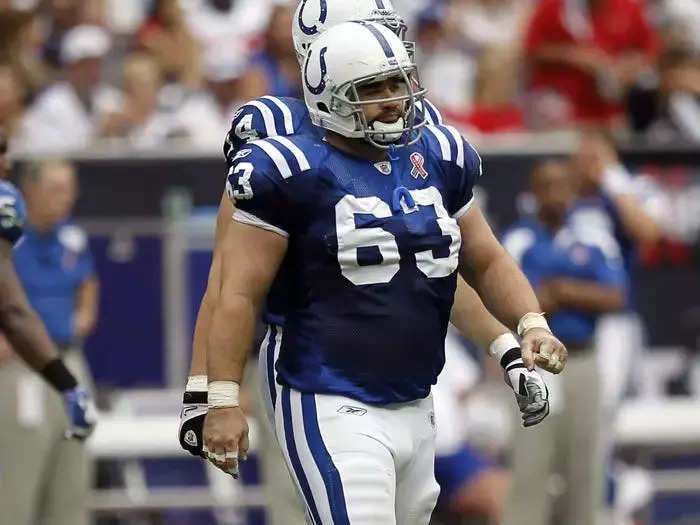
Jeff Saturday Getty Images
Jeff Saturday, left, now weighs 238 pounds and runs a program to help former players learn about healthy lifestyles.
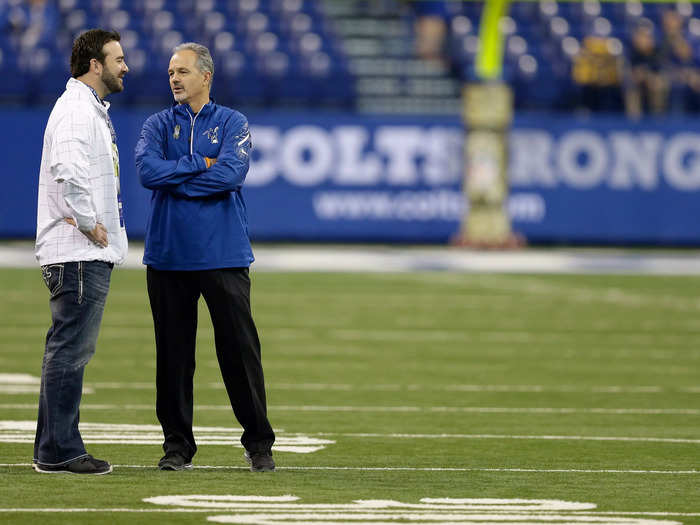
Darron Cummings/AP
SOURCE: ESPN.com
Longtime Patiots star Vince Wilfork was listed at 325 pounds in his playing days, but when he last suited up for the Texans in 2016, he was probably much higher than that.,

Bob Levey/Getty Images
But despite being a well-known lover of food and becoming a BBQ ambassador in retirement, he has clearly curbed his eating habits and appears to now weigh less than at any time in his career.
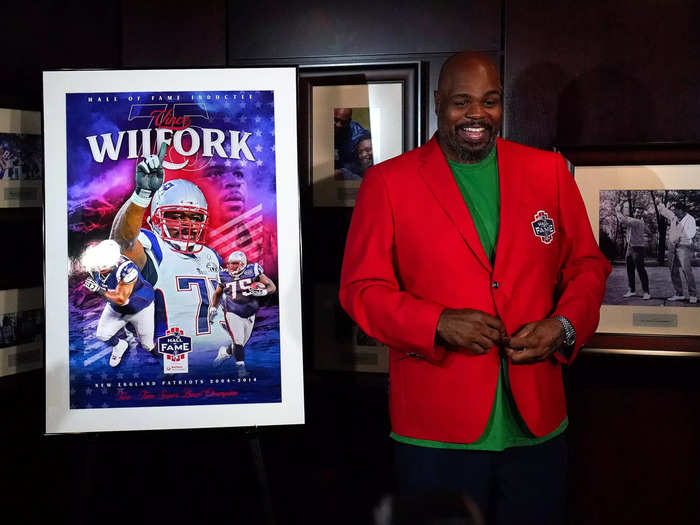
Barry Chin/The Boston Globe via Getty Images
Jordan Gross was a 3-time Pro Bowler as a 300-pound offensive lineman with the Panthers.

Jordan Gross Getty Images
Just seven months after retiring following the 2013 season, Gross looked a lot closer to 200 pounds when he visited training camp.

Jordan Gross Chuck Burton/AP
Former Steelers center Maurkice Pouncey was never the biggest lineman, but was still listed at over 300 pounds during his playing days.

Michael Reaves/Getty Images
Just two years after retiring, he now looks more like a linebacker or safety.

Instagram/maurkicepouncey
Antone Davis (No. 78) was a 330-pound offensive lineman and grew to 475 pounds after he stopped playing in 1997.
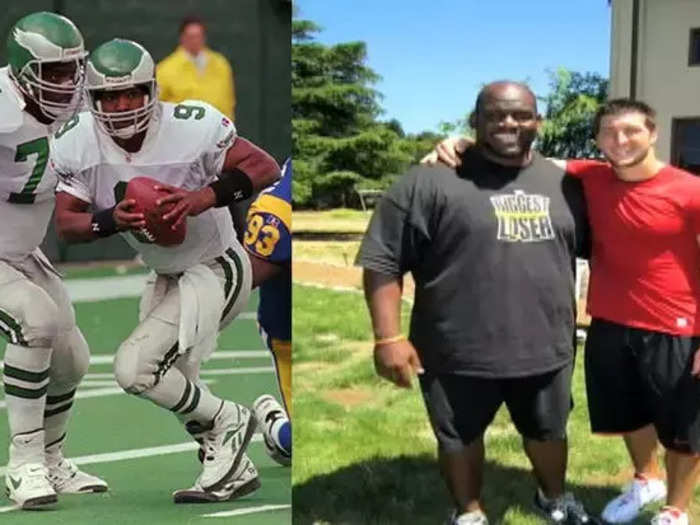
Antone Davis AP/NBC
Antone Davis was a runner-up on NBC's "The Biggest Loser," where he lost more than 200 pounds.
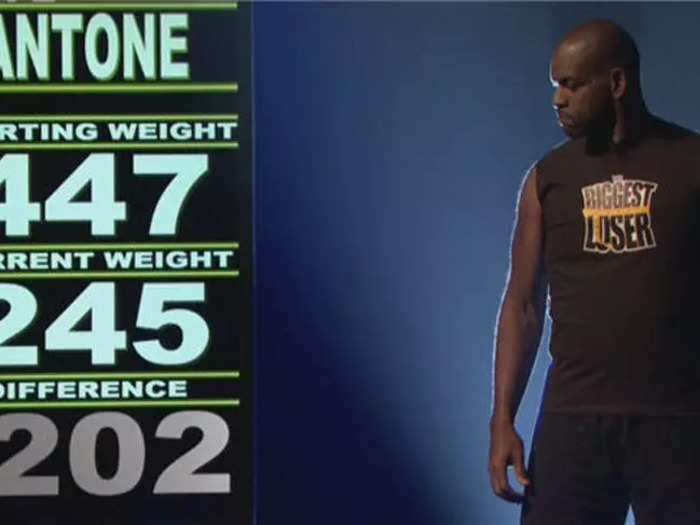
NBC via SportsGeekery
Damien Woody was a 320-pound offensive lineman for the Lions, Patriots, and Jets.
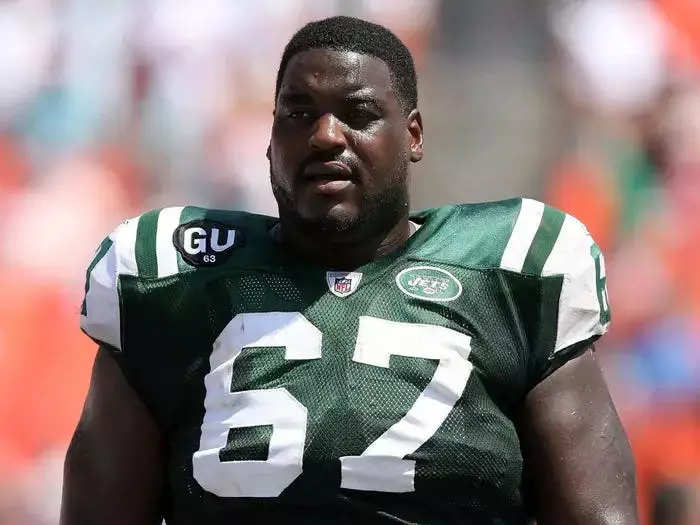
Damien Woody Doug Benc/Getty Images
After seeing his weight go up to 388 pounds in retirement, Woody went on "The Biggest Loser," and lost 110 pounds.
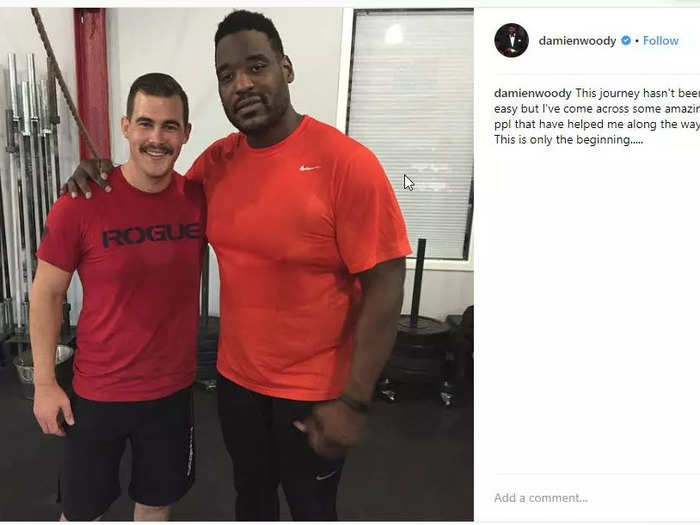
Instagram
Nate Newton (No. 61), a 320-pound offensive lineman, played most of his 14-year career with the Cowboys before retiring in 1999 and growing to nearly 400 pounds in retirement.
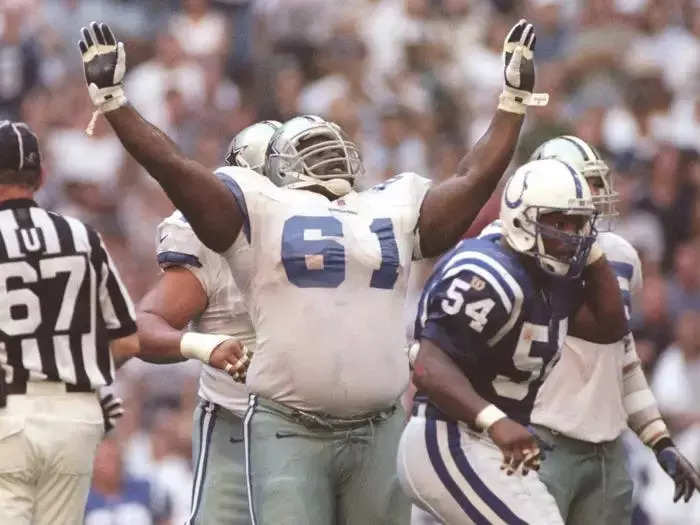
NAte Newton Getty Images
He was able to get down to 220 pounds in 2010 after surgery to remove 75% of his stomach.
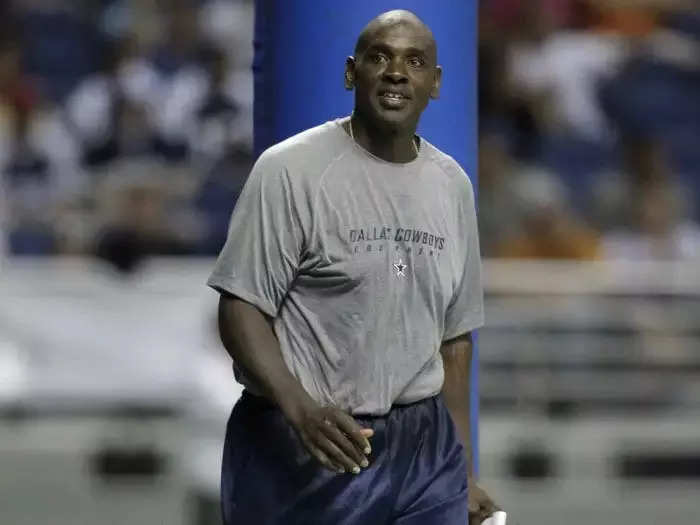
Source: Dallas Morning-News AP
Source: Dallas Morning-News
JaMarcus Russell struggled with his weight with the Raiders and even more before attempting to get back into the NFL.

JaMarcus Russell Getty Images/YouTube
In 2013, JaMarcus Russell lost 51 pounds hoping for another shot in the NFL.
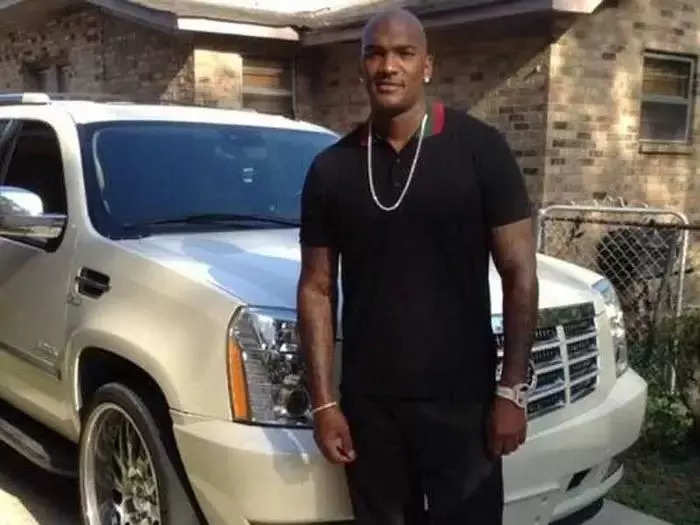
Jamarcus Russell Test Football
SOURCE: @TEST_Football
Tom Nalen was a 290-pound center for the Denver Broncos, last playing in 2007.

Tom Nalen Getty Images
A thinner Nalen was inducted into the Broncos' Ring of Fame and credited continuing to work out after his retirement for the weight loss.

Tom Nalen Jack Dempsey/AP
Source: TheSunChronicle.com
LenDale White weighed as much as 260 pounds as a running back for the Titans.
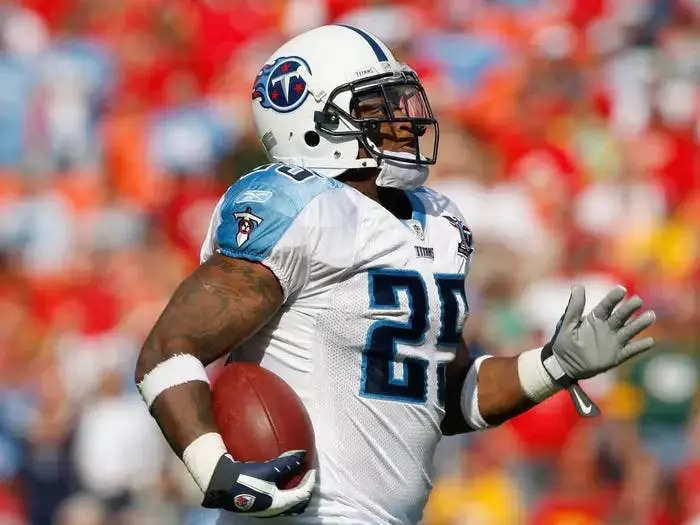
Lendale White Jamie Squire/Getty Images
Prior to his last season in the NFL, LenDale White lost 30 pounds, a result he credited to giving up tequila.
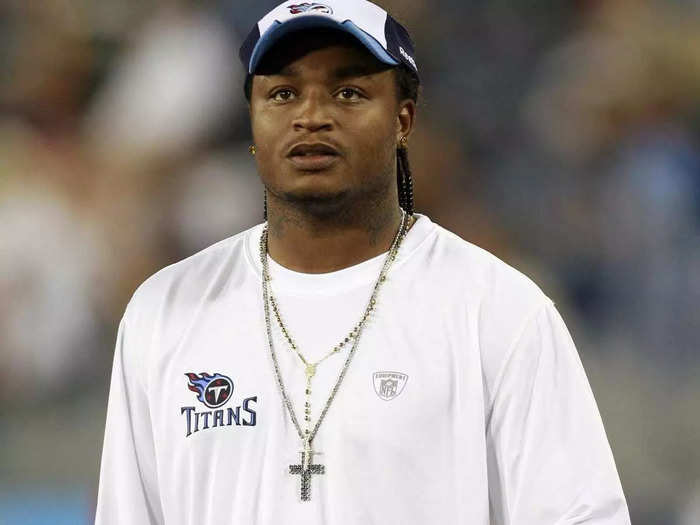
Joe Murphy/Getty Images
SOURCE: SI.com
Mark Schlereth was a 290-pound offensive lineman for Washington and Denver and last played in 2000.
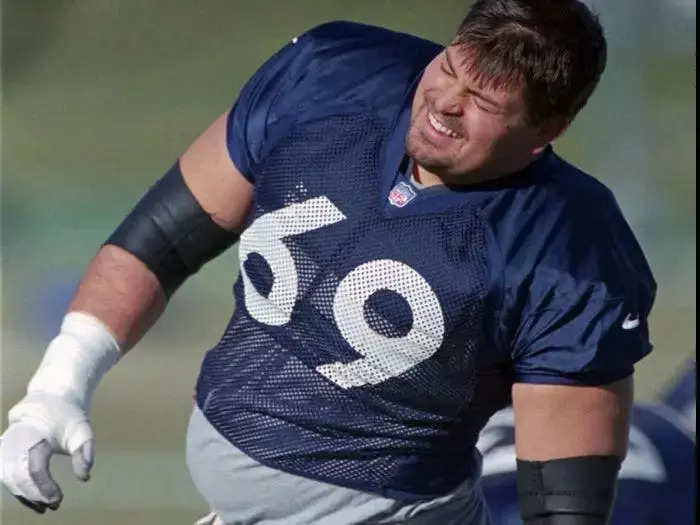
Mark Schlereth AP
Mark Schlereth is now a slimmed-down commentator on Fox Sports.
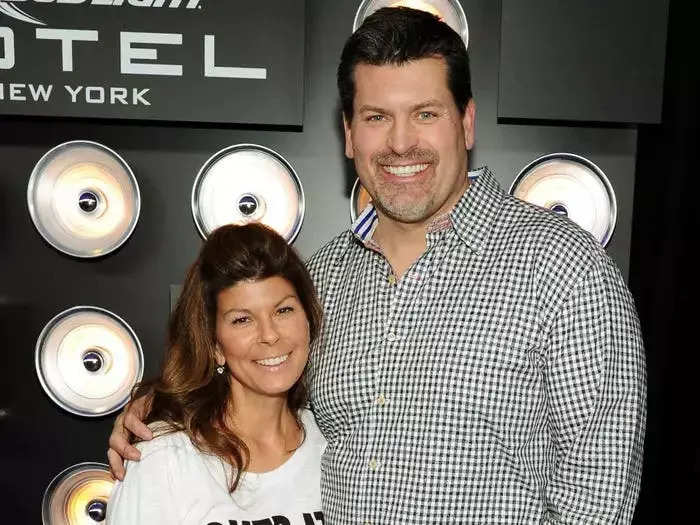
Mark Schlereth Getty Images
Tony Bergstrom, an offensive lineman who has played for 5 teams in 10 years hasn't retired yet, but already has a plan for when he does.
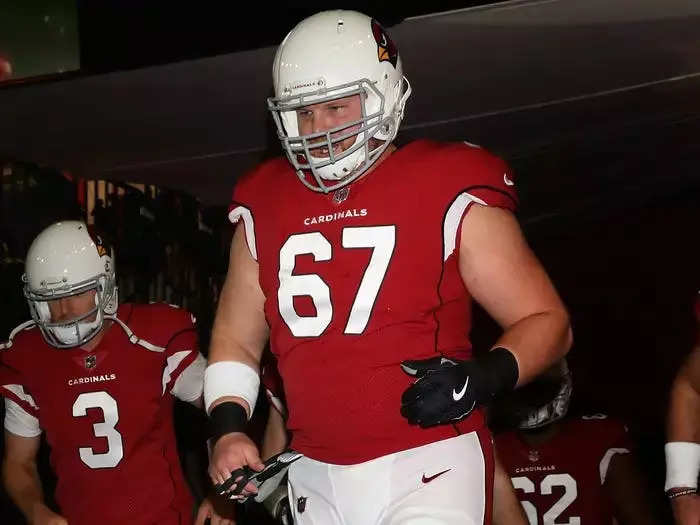
Tony Bergstrom Christian Petersen/Getty Images
Bergstrom told WaPo: "I have the diet plan already written out. Offensive linemen go one of two ways: You either balloon up or you shrink to nothing. I'd rather shrink to nothing. Three months later, you'll see a whole different person. I'll come walking in and you'll be like, I don't know who that is."
Popular Right Now
Popular Keywords
Advertisement